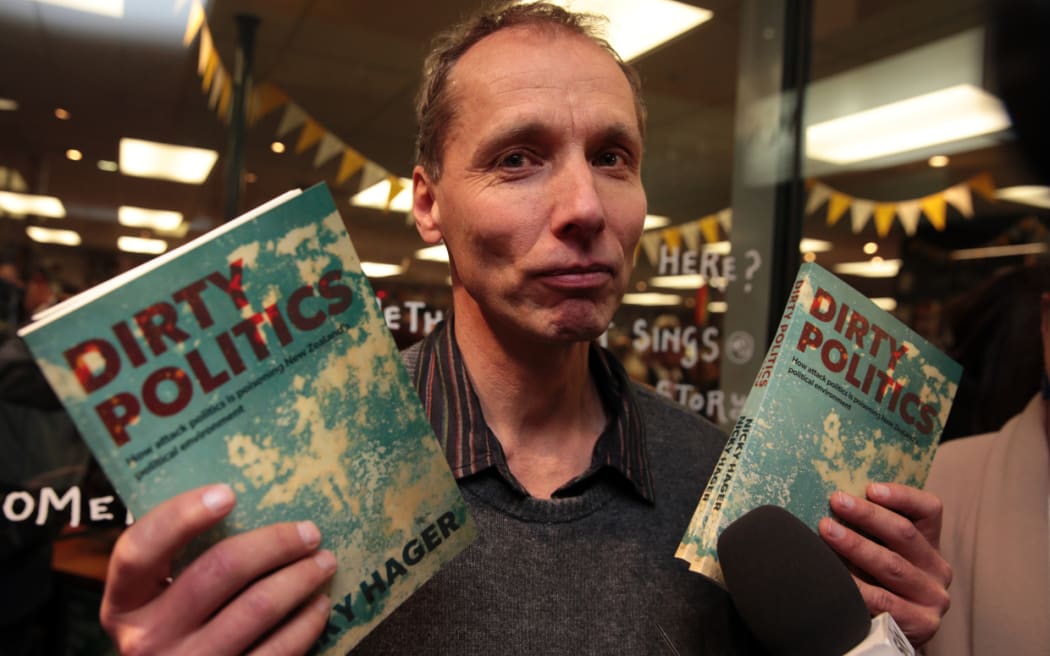By Grant Duncan *
Opinion - After two elections in 2011 and 2014 riddled with distractions - 'dirty politics', Kim Dotcom's 'Moment of Truth', and the teapot tapes - the best thing about the 2017 campaign has been the thorough debate about policies.
Yes, there have been a few scandals, mainly around individuals, but they have not dominated the election.

Unlike 2014, there's been very little dirt to mar the 2017 campaign, says Grant Duncan. Photo: RNZ / Diego Opatowski
After the upsets of 2016 (Brexit, Trump, etc), many were worried that the populist surge would hit New Zealand and that anti-establishment and anti-immigrant sentiments would dominate. Winston Peters would benefit politically, and cynicism would prevail.
As it's turned out, immigration has not been the leading decisive issue for voters - other than among NZ First supporters. Immigration has certainly been debated among the parties, but it's not been a hot issue.
Unlike the refugee influx into Germany, the free migration of labour across the English Channel, or Trump's scapegoating of Mexicans and Muslims, New Zealand's immigration issues are more contained. The Pacific Ocean creates a natural barrier, saving us from protectionist rhetoric about building walls or withdrawing from international agreements.
Furthermore, we have not been overloaded with fake news, alternative facts or outrageous populist rhetoric - other than pork pies about an $11.7 billion 'hole' and increases in income tax.
We have watched two impressive leading candidates for Prime Minister. They have largely stuck to the issues and refrained from attacking one another. The debates between them have been intellectually robust and hard-fought - occasionally heated, but relatively civil.
So-called 'post-truth politics' has not won the day, and the democratic system is working surprisingly well.
The Stuff.co.nz/Massey University Election Survey suggested this year that the number one decisive policy issue, high on the list for supporters of all four leading parties, was health. One of the most resounding results in that survey was 80 percent agreement that our health system is 'underfunded and overloaded.'
Health was followed by economic growth (a big issue mainly for National supporters) and poverty/inequality. Housing was not far behind, of course. Taxation wasn't rated highly at all as an issue, but the Labour Party has presented a soft target for National's dirty-bomb, "Let's tax this".
Labour didn't help their cause by initially suggesting that tax reform could be introduced in its first term. As we know, Jacinda has softened that stance, assuring voters that any such plans would be put to the electorate in 2020. Income taxes and the family home would be off the agenda.
But the taxation debate - which put Labour on the defensive - distracted attention away from other key issues that New Zealanders had highlighted in surveys.
On the other hand, in the second debate between Bill and Jacinda, there was an impressive contest over child poverty. It's taken a long time to get this critical issue onto the pre-election agenda. Now let's hope we see some serious action to eliminate child poverty, from whoever forms the next government.
Amid the drama and speculation that goes with elections, it's worth reflecting that, for the first time in some years, we are witnessing a genuine and robust democratic contest.
*Associate Professor Grant Duncan teaches political theory and New Zealand politics at Massey University.

